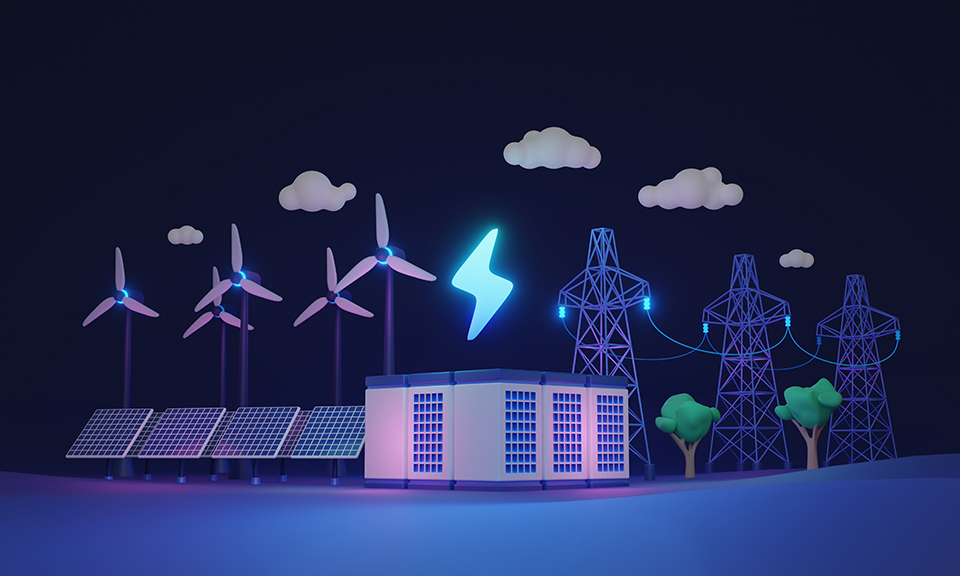
Running a business involves a complex balancing act, often filled with unforeseen challenges. One significant problem that frequently arises is power disruption, a common risk that can affect productivity and profitability. It’s crucial to have a strategic plan in place for such scenarios to mitigate downtime risks.
An increasingly popular energy backup solution among businesses is the use of a gas generator, which provides reliable and immediate power during outages, thereby ensuring operational continuity. However, this is just the start; continue reading to delve deeper into robust energy backup solutions that can safeguard your business against power disruptions.
Choosing The Right Backup Solution
When considering energy backup solutions, it’s evident that one size doesn’t fit all. Your ideal solution depends on your business’s specific needs and circumstances. Here are other popular choices:
- Battery Backup Systems: These are suitable for short-term power interruptions, as they store power for use during an outage. However, keep in mind that they aren’t designed for long-duration power failures.
- Renewable Energy Systems: Systems like solar power can provide a sustainable and cost-effective solution. They convert sunlight into electricity, which can be stored in batteries for use during power disruptions. Although they require a significant initial investment, they can lead to substantial long-term savings.
- Uninterruptible Power Supply (UPS) Systems: UPS systems deliver immediate power during an outage, making them ideal for maintaining critical operations. They’re often used to protect sensitive equipment, like computers, that could be damaged by sudden power loss.
Each backup solution has its strengths and weaknesses. Evaluating these against your specific requirements, such as the extent of power needs, duration of backup power required, and budget constraints, is essential.
Implementing A Comprehensive Backup Plan
Selecting the right backup solution is just the first half of the battle. The next critical step is implementing a comprehensive backup plan to ensure business continuity during power outages. Here are key components that every robust backup plan should incorporate:
- Professional Installation: The effectiveness of a backup system is directly proportional to the quality of its installation. Hence, ensure your backup solution is installed by professional service providers with the necessary expertise and tools for a safe and optimal setup.
- Regular Maintenance and Testing: Every backup system requires maintenance to remain effective. Regular check-ups help identify and rectify potential issues before they escalate, extending the lifespan of your backup solution and optimizing its performance.
- Outage Response Strategy: A well-thought-out outage response strategy is crucial to ensure smooth operations during a power outage. This strategy may involve assigning roles to specific team members, detailing steps for switching to backup power, and establishing communication protocols.
Remember, the key to successfully implementing a comprehensive backup plan lies in proactive measures. By preparing for possible disruptions in advance, you can minimize potential downtime, maintain productivity, and protect your business’s reputation.
Training Staff To Handle Power Outages
An effective energy backup plan is incomplete without the people who can execute it—your staff. Therefore, it’s crucial to train them to handle power outages correctly. Here are some key aspects to consider:
- Understanding the Backup System: Your staff should have a basic understanding of the backup system in place, including its type, location, and operation.
- Safe Operation Practices: Safety must always be prioritized. Staff members should understand the dos and don’ts of operating the backup system, including safety precautions, emergency shutdown procedures, and potential hazards associated with the system.
- Backup System Activation Procedures: Simply knowing about the backup system is not sufficient. They also need to be trained in the procedures for activating the backup system during a power outage.
At its core, effective training programs empower workers and help maintain a safe and productive environment during power outages.
Monitoring And Maintenance: A Continuous Process
The process of managing energy backup solutions doesn’t end at implementation. The following elements highlight why monitoring and maintenance should be ongoing:
- Consistent Performance: Regular monitoring ensures that your backup system is performing at its optimum capacity. It allows for early detection of potential issues, preventing sudden system failures that could lead to unanticipated business disruptions.
- Prolonging System Life: Regular maintenance can significantly increase the lifespan of your backup solution, be it a gas generator, a UPS system, or a battery backup system. This improves the return on your investment and ensures reliable backup power for a longer period.
- Safety Assurance: Routine inspections and maintenance also contribute to workplace safety. They enable the identification and correction of safety hazards, reducing the risk of accidents associated with the backup system.
In essence, monitoring and maintenance of your energy backup solution should be an ongoing process. Prioritizing this will ensure the continuous, safe, and effective operation of your backup system.
Conclusion
Protecting your business from potential downtime risks involves more than just purchasing a backup system. It requires understanding your needs, selecting the appropriate solution, implementing a comprehensive plan, training staff, and maintaining a regimen of regular monitoring and maintenance. Don’t let power outages disrupt your business operations. Stay prepared, stay ahead, and turn potential disruptions into opportunities for demonstrating resilience.
Interesting Related Article: “The Central Role of Energy Storage in Sustainability“
from Latest Technology News https://ift.tt/7r9YmZU
via IFTTT



0 Comments